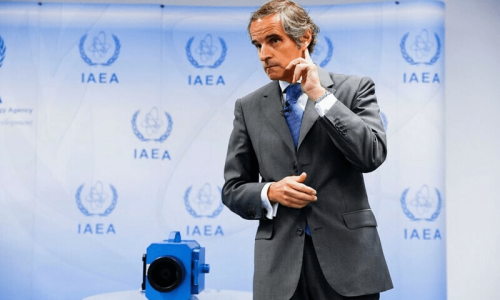KARACHI, Oct 27: Banks are awaiting outcome of negotiations with the International Monetary Fund (IMF) as they are unclear what would be their credit policy if Pakistan braces for IMF programme with its ‘known’ prescriptions.
Shaukat Tareen, advisor to the Prime Minister on finance, met heads of banks and leasing and modaraba companies, including mutual funds, on Monday at the State Bank.
“No decision was taken in the meeting,” said Aftab Manzoor, President, Allied Bank, and Chairman, Pakistan Banks’ Association.
It was the first meeting with the banks and other related sectors after his appointment as advisor. However, the meeting was important under the circumstances when banking and related financial system was facing serious threat in the developed economies and Pakistan being part of the system could receive negative impact.
“We are not facing trouble because of happenings in the developed economies. Our problem is local and has already been resolved with the help of State Bank which pumped liquidity and money rates dropped to almost normal level,” said Aftab Manzoor. However, a number of bankers did not accept this perception that despite meltdown of giant financial system in the developed economies, nothing wrong was penetrating into Pakistan’s financial system.
These bankers said the problem is not grave as they emerged in the West but the outcome of economic slowdown is reaching Pakistan.
“How can banks take independent decision when Pakistan is negotiating with the IMF,” said another senior banker.
“If the country signs an agreement for help, the IMF will certainly restrict credit lending to reduce economic growth, cut inflation, slice development expenditure and bring down the fiscal deficit,” said the banker.
The inflation is running at about 30 per cent and the rupee has devalued by 25 per cent. Foreign-exchange reserves of the country cover just six weeks of imports while huge foreign payments are waiting in the beginning of next year.
The country needs at least $3 billion in short order, and a further $10 billion over the next two years to plug a balance-of-payments gap. A $500m Eurobond will mature next February.
“The fiscal deficit is about 10 per cent of Gross Domestic Product (GDP) which means massive cut in development expenditures and that will craft the credit trend and limits in the country,” said the banker.
Bankers said they were not under pressure of any authority for the credit lending while the State Bank is continuously facilitating banks to avoid any credit crunch like it was witnessed in the developed economies.
Leasing, Modaraba and mutual funds executives were also present in the meeting with banks. All these sectors are in trouble because of less availability of credit in the market.
These sectors depend entirely on banks for their business and could be the first victim of credit crunch. Even small banks were in trouble when large banks stopped lending them but intervention of State Bank granted them new life.
“Things will change, if Pakistan signs agreement with the IMF and the credit policy of banks will be clear after the decision to embrace IMF or not,” said the senior banker.











































Dear visitor, the comments section is undergoing an overhaul and will return soon.